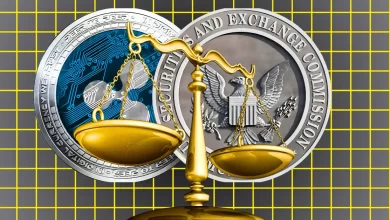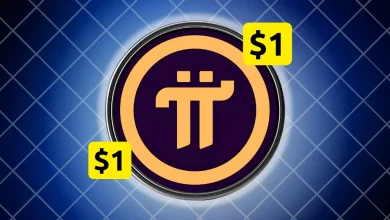The SEC wants to regulate XRP futures as securities, but Bitnomial argues they are commodities like Bitcoin futures.
The SEC has clashed with Ripple and other companies over crypto regulation.
Bitnomial's lawsuit adds pressure on the SEC, and the outcome could set a precedent for future crypto derivatives.
Bitnomial, a digital asset exchange, is challenging the SEC in a legal battle that could have big implications for cryptocurrency trading in the U.S. The clash centers around the classification of XRP futures. The SEC argues they are securities, while Bitnomial contends they should be treated as commodities.
So, what’s the big deal? The classification of XRP futures could determine how they are regulated and traded.
The stakes are high. Read on for more information.
The SEC vs Bitnomial: What’s the Fight About?
Bitnomial introduced an XRP futures contract, which was approved by the Commodity Futures Trading Commission (CFTC). However, the SEC then stepped in, claiming that these futures should be classified as “security futures.” If that’s the case, Bitnomial would need to follow stricter rules, including registering as a national securities exchange before offering the contracts. Bitnomial argues this is unnecessary.
Bitnomial believes XRP futures should be treated as commodities, just like Bitcoin (BTC) and Ethereum (ETH), rather than as securities. They argue that the SEC is overstepping its authority and trying to control the growing crypto space by adding unnecessary restrictions on XRP futures.
This disagreement led Bitnomial to file a lawsuit against the SEC.
What Makes Bitnomial’s Case Different?
This isn’t the first time the SEC has gone after a crypto company. Ripple is still fighting its own case, and major players like Binance and Coinbase are facing similar challenges. But Bitnomial’s case stands out. The exchange has maintained a clean track record, and its focus on XRP futures makes this a unique situation that could influence how crypto derivatives are regulated in the future.
Bitnomial isn’t the only one pushing back against the SEC. Just last week, Crypto.com filed a lawsuit against the agency, arguing that it’s going beyond its legal power. As more companies stand up to the SEC, pressure is mounting on the agency to clarify how it regulates crypto assets.
A Long, Long Battle Ahead
This fight won’t be over anytime soon. Ripple is also fighting the SEC. After being told to pay $125 million, they filed an appeal. Both sides are ready to battle it out in court. Bitnomial’s lawsuit adds even more pressure on the SEC. More companies are challenging how the SEC handles crypto assets. So, it’s likely this legal battle will drag on for a while.
No matter how the case is decided, Bitnomial’s lawsuit will have a lasting impact on the future of crypto trading in the U.S. Whether they win or lose, the entire crypto industry is watching closely, as the outcome could shape how crypto futures are regulated in the years to come.
What do you think? Will Bitnomial win this fight?








